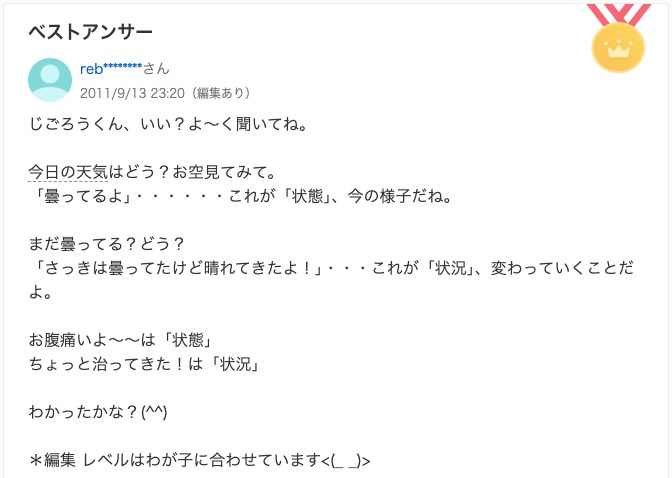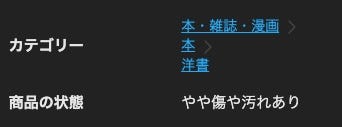状態・状況
Various Conditions - How to Japanese - January 2025
This is How to Japanese, a monthly newsletter with something about Japan/Japanese and a dash of いろいろ.
日本・日本語: Various Conditions
The internet is, at once, the greatest invention of all time and (likely) humanity’s downfall. Given that it’s the start of a new year, let’s ignore the latter of these and focus on the good.
Such as one of the responses to this Yahoo Chiebukuro question: 「状況」と「状態」の違いを小学生でもわかるように親切に教えてくれる? (Jōkyō to jōtai no chigai o shōgakusei demo wakaru yō ni shinsetsu ni oshiete kureru? Could you explain the difference between 状況 and 状態 to me so even a little kid could understand?).
There are a number of answers, but the OP gave the gold medal (rewarded to the best response) to the person who took him literally and responded as if addressing an actual elementary school kid. Hear me read it out on the podcast this month to get the full effect.
As regular readers may have been able to guess, this month is the second installment of Impossible Pairs, which I first wrote about in September 2024. These are sets of words that are frustratingly similar and require an extra effort (occasionally even “brute forcing”) to differentiate. This month I’m looking at 状態 (jōtai) and 状況 (jōkyō).
These two sound similar and are similarly abstract, conceptual words that are used to mean “circumstances/condition/state.” One of my Japanese instructors always said that
状態 (jōtai) is used for smaller things like the condition of a used book, whereas 状況 (jōkyō) is used for larger things like the political situation in the Middle East, but after reading the Chiebukuro post I mentioned above, I think it’s a little more complex than that. The responder, despite phrasing it like a condescending schoolteacher, does have a nice simple way of defining these two terms:
状態: 今の様子 (Ima no yōsu, the current state/appearance)
状況: 変わっていくこと (Kawatte iku koto, the changing state/circumstances)
That makes it possible for us to create this useful mnemonic:
状態: static
状況: dynamic
I guess this isn’t a mnemonic, per se, but we could shoehorn one in there with the TA in static and jōtai, and the Y in dynamic and jōkyō.
状態 is the static state/condition that something or someone is currently in: It’s good, bad, worn, mint, unruffled, etc.
状況, on the other hand, is a dynamic amalgamation of the 状態 of all things within a set situation over a period of time. It’s a fluid state of affairs of a larger situation; it’s a bit more zoomed out and expansive, and it’s also in flux.
This website has another useful breakdown that starts with a definition for each term but then expands to frequent usages, which I found particularly helpful.
状態:
Condition of someone’s body/mind (体の様子)
Condition of a product/device (商品・機器の様子)
The object of a verb that preserves, fixes, or restores (保つ、治す、復元するなどの動詞)
状況:
State of society/an organization (社会・組織の様子)
State of work (仕事関係の様子)
The object of verbs that report, explain, or investigate (状況は報告・説明・調査などと一緒に使われやすい)
Hopefully that gives you a way in to sort out the difference between these two. It did take me a while, but I think I’ve more or less mastered them. Or maybe I’ve looked at Mercari once or twice two often and have just locked in 状態 as the word used for the static condition of an item for sale:
And at work, I’m familiar with 状況確認 (jōkyō kakunin), which is what you do when there are two groups working together and maybe one of those groups needs to get up to speed. They need to figure out what is going on with a project (all the various, dynamic aspects of it), and they do so by doing 確認 on the situation.
Have you become familiar with these two words? If so, what’s enabled you to differentiate them?
いろいろ
Just a small addition over at the blog this month, a note that 状態 is more of a video game word than 状況 due to the fact that the various PC and NPC are always getting into some sort of trouble, affecting their current “condition”/“status.”
There’s a nice profile of koji whiskey in the New York Times. Christopher Pellegrini and Stephen Lyman have introduced a lot of these topics on their podcast Japan Distilled, so give that a listen as well if you’re interested.



